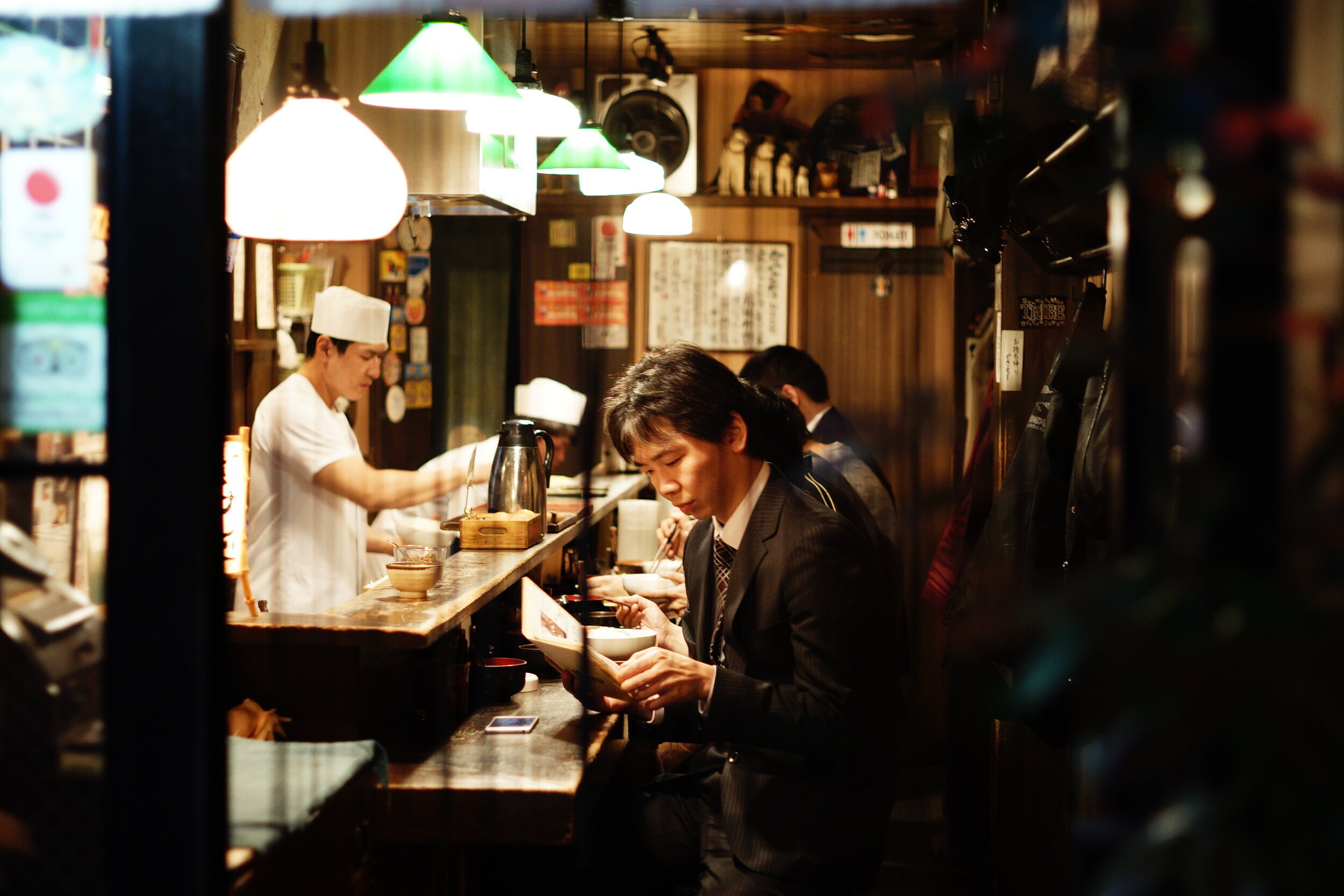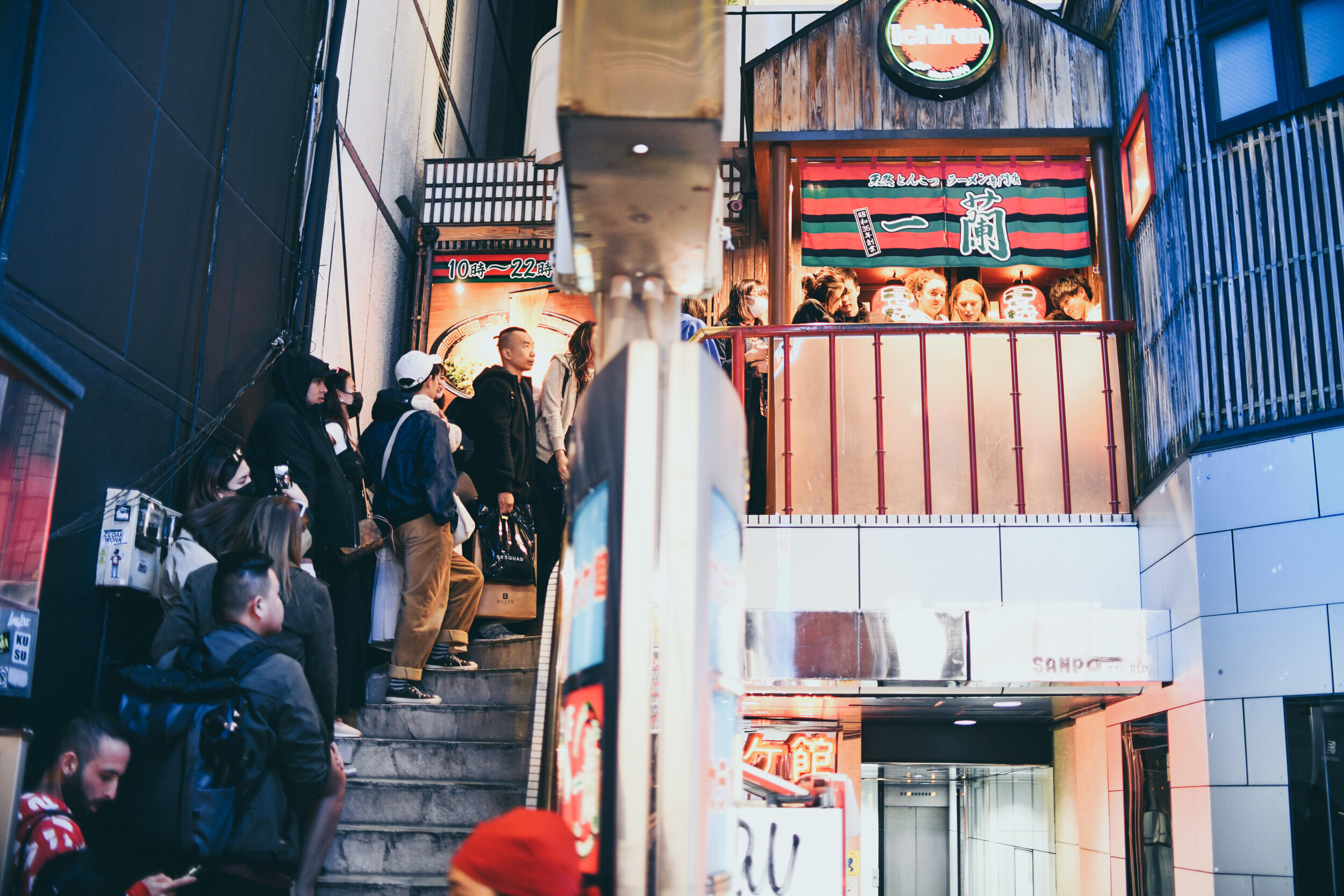Thank You For Waiting

This may well be my favourite expression of gratitude. If you travel to Japan, you will hear it repeatedly. For it is uniquely Japanese. Throughout the country, in any manner of situations, you will be thanked for waiting. It’s a contradiction of sorts. I mean, you have to wonder why anyone would ever really do this?
Certainly, in western countries, we would expect you to wait. It’s practically understood that you have to. Nothing happens instantly, everything takes time. You should wait. We get it. There is no need to thank us.
To thank you for waiting is just the tip of the iceberg of the politeness of the Japanese. It is the perfect example to use due to the extraordinary nature of the comment itself. It has been said to me on every occasion where I am waiting my turn, waiting to have a gift wrapped, waiting for a coffee, or waiting for a response. Each and every time, the expression completely floors me. It gives me a moment of happiness. I try to be as humble in return.
In most instances where I have been thanked for waiting, I actually didn’t really wait at all. In Osaka I stood behind one person who had just finished his order at a take-away counter. I’m talking a matter of seconds. It happened again when buying a train ticket at Tokyo Station. Two steps to the counter, a wait of a few seconds.
Japan is a nation that loves to queue, but I have rarely had to do this. Perhaps only occasionally for ramen. As for me, during my visits to the country, I really don’t think I was deserving of being thanked, as I really hadn’t done anything that warranted it. Why thank me upon reaching the front of the ramen queue? Am I being thanked for the popularity of the restaurant?
It’s not just the expression itself, but the way that it is delivered, that is amazing. When you are thanked for waiting in Japan, you are done so with a smile. There is a genuine honesty when you are thanked this way. A belief that you are a good person for waiting. It is delivered with warmth. Simply being thanked in such a polite manner makes you feel good, warranted or not. It certainly starts out your interaction with a person on the best foot.
Imagine if you were thanked for waiting in one of our Western countries. I doubt you’d be looked in the eye. You wouldn’t receive a smile. If it were obligatory to be thanked in this way, then I imagine it would be brushed off in the same, uniform way as that closing statement when ordering food at a counter: “Have a nice day”. It would be delivered under the breath, quickly, to get it out of the way. Not genuine at all. Abbreviated to make it quicker: “thanks for waiting, so….”
When you are thanked for waiting in Japan, they really, really mean it.
How a nation can have such unfounded politeness is remarkable. From one end of the country to the other you will see this. It is an art found nowhere else like Japan. The Japanese make it look so effortless. I believe it truly is, as generation after generation have exhibited it.
How would our fast, impatient ways be if we employed just some of this politeness in our countries? Surely just that little bit better, calmer, more understanding? To employ Japanese manners would benefit so many nations. Witnessing the Japanese carry on their daily lives with respect for others, mutual understanding and kindness has a profound effect on me whenever I visit. It’s fascinating and intoxicating. It’s impossible not to make the comparison between the ways of the Japanese and those of most other nations.
Ask anyone who has been to Japan and they will tell you the nation’s people are the loveliest in the world.
What must the Japanese really think of what the major Western powers represent? Of the gruff, entirely egotistical and maniacal world leaders that are front face and forward at this present moment? Is there anything to thank them for?
We in the West who have experienced Japan and love these idiosyncrasies could do well to try and replicate some of them back home. Perhaps it would alleviate some of our stress and bring better good to our everyday existence. Though I really cannot see the implementation working. The differences between Japanese culture and communication and those of most Western countries are as vast as the Grand Canyon.
We will just have to keep going back to Japan to see first hand just how beautiful and admirable so many of their ways are. Hopefully some will rub off and make us better people. No matter where we are.


